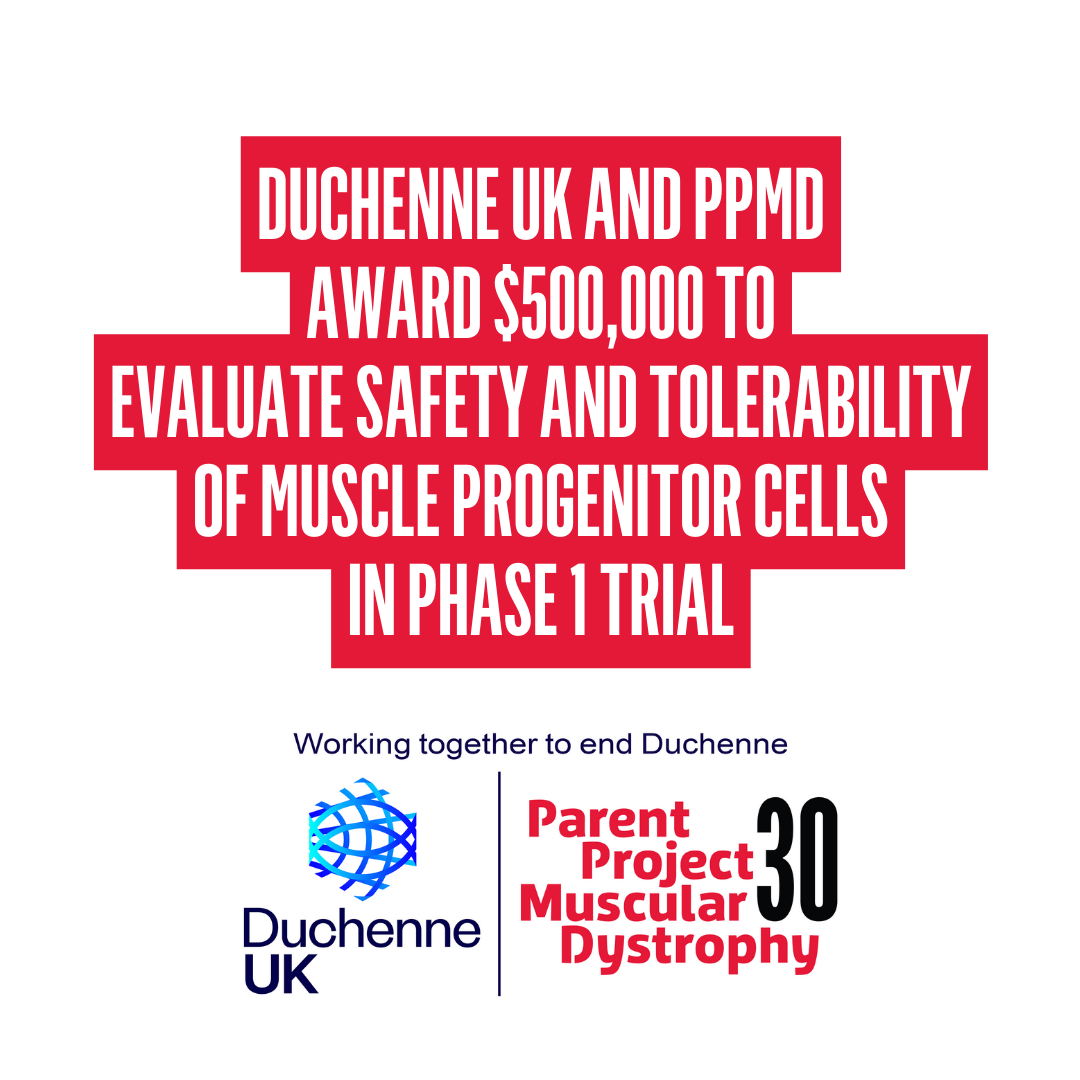
PPMD and Duchenne UK are excited to announce the recipient of their Joint Call for Therapeutic Projects. Pediatric neuromuscular neurologist Professor Peter Kang MD, from the University of Minnesota Medical School, has been awarded the grant for his research project titled “Phase 1 clinical trial of myogenic progenitors for DMD.” The grant, totaling $500,000, will support Dr. Kang and his co-investigators in evaluating the safety and tolerability of muscle progenitor cells for Duchenne muscular dystrophy.
In response to the evolving landscape of gene and cell-based therapies, PPMD and Duchenne UK issued a joint call to find and fund projects addressing the challenges in ‘first generation’ gene therapies and exploring opportunities in the cell-based and regenerative therapies field to ensure new, safer, and more effective treatments reach the clinic. From a competitive pool of potential projects, Dr. Kang’s work to establish safety in a first-in-human study of muscle stem cell progenitors received strong support from the committee of reviewers.
Cell-based therapies have long been investigated for their potential therapeutic application for Duchenne, in the hopes that these therapies could supply patients with a source of healthy muscle cells that can produce dystrophin. As progress in the space continues, this trial represents a pragmatic approach to the next step in cell-based therapy for Duchenne by evaluating how safe these therapies are to administer.
Dr. Kang’s project builds on previous research, utilizing muscle progenitor cells, known as MyoPAXon, developed by Dr. Rita Perlingeiro and her team at the University of Minnesota. These cells, derived from human pluripotent stem cells, have shown promise in preclinical studies for their ability to regenerate damaged skeletal muscle.
This Phase 1 trial led by Dr. Kang’s team will provide valuable insights into the safety and feasibility of transplanting MyoPAXon cells. By administering local injections into an individual’s foot, researchers will be able to monitor any potential site reactions or immune response. Additionally, the team will study how long the cells persist and lead to dystrophin-producing myofibers. If the trial provides positive data for safety and tolerability, as well as feasibility, it has the potential to set the stage for a Phase 2 study targeting other muscles. The trial will be conducted at the University of Minnesota and the initial cohort will include six participants with Duchenne.
The clinical translation of the induced pluripotent stem cell product, MyoPAXon, is the culmination of years of work by an interdisciplinary translational research team at the University of Minnesota, encompassing the lab of Dr. Rita Perlingeiro, its Molecular and Cellular Therapeutics cGMP facility, Center for Translational Medicine, and the university’s Greg Marzolf Jr. Muscular Dystrophy Center. Duchenne UK was also instrumental in contributing over $900,000 to fund the investigational new drug enabling studies of MyoPAXon led by Dr. Rita Perlingeiro.
Emily Reuben, Co-Founder and CEO of Duchenne UK, explains:
“Duchenne UK has supported Dr. Perlingeiro’s work on developing muscle progenitor cells for a number of years. This clinical trial represents the next logical step in the development of what we hope is another potential therapeutic option for individuals with Duchenne.”
Pat Furlong, PPMD’s President and CEO, explains:
“As we have witnessed the potential of stem cell therapies for Duchenne evolve over the years, PPMD is excited to support moving a novel therapeutic closer to patients. While there has long been hope that these types of therapies could hold promise in Duchenne, we are pleased to see new thoughtful approaches emerging to prioritize patient safety.”
Dr. Peter Kang describes:
“This funding is critical to our ability to safely evaluate this therapy in patients. Our hope is that this is the first step in unlocking the potential of this technology for individuals with Duchenne. There will still be work to do in order to further understand and deliver this therapy to other muscle tissue, but a pivotal factor is elucidating the engraftment potential and safety of the cells.”



 by: Parent Project Muscular Dystrophy
by: Parent Project Muscular Dystrophy

